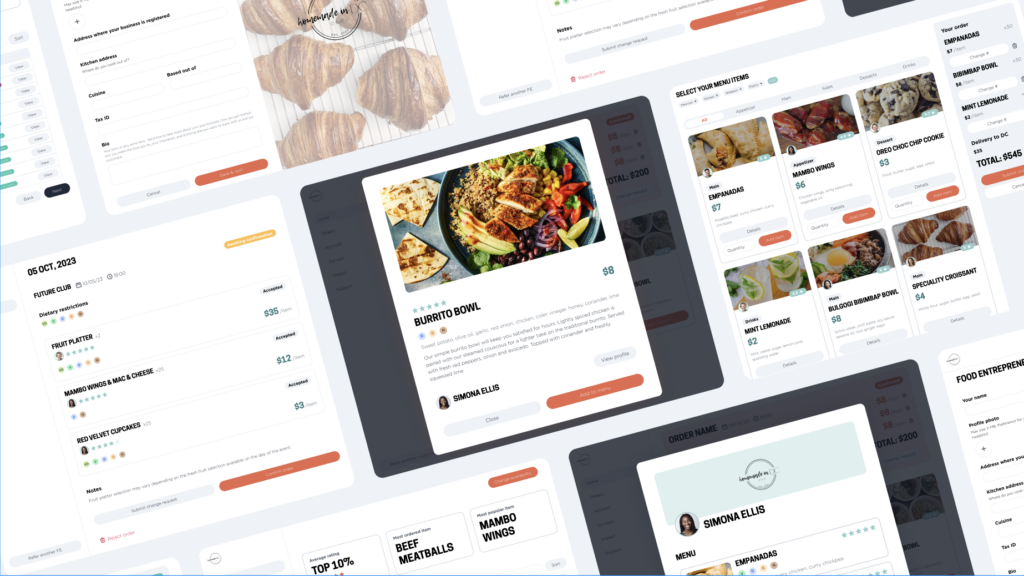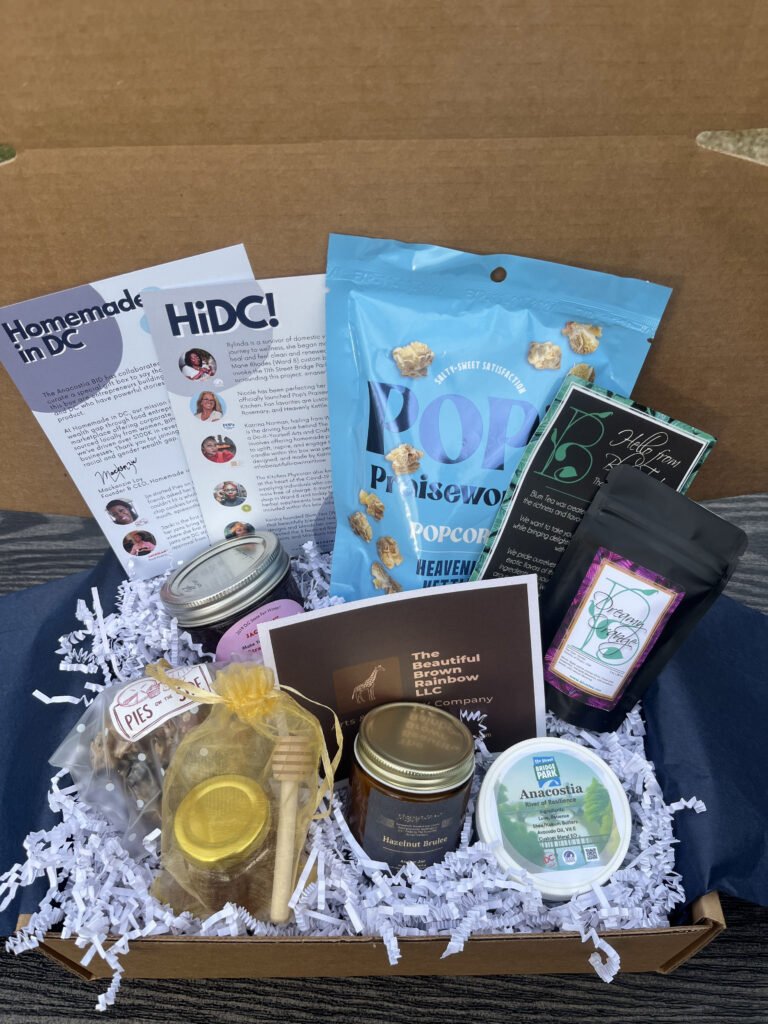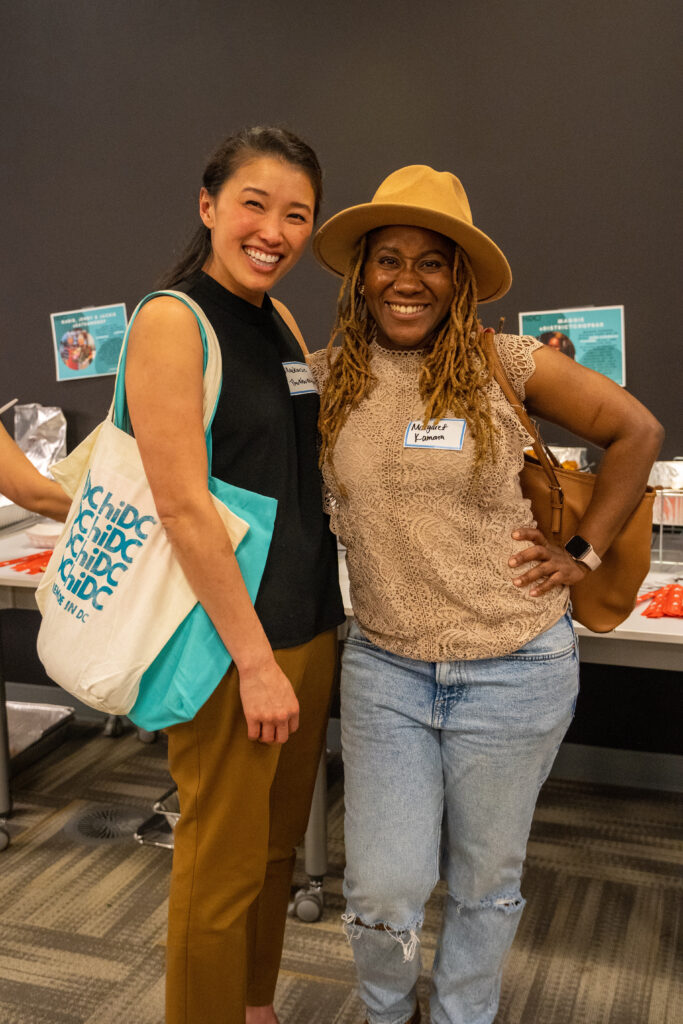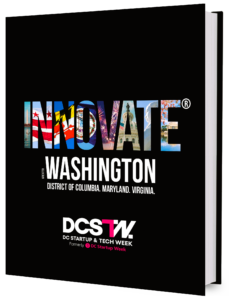Homemade in DC is innovating on the staid corporate catering and gifting scene, combining local sourcing, diverse founders and small businesses, storytelling, and rich data all on one platform. Founded by Mackenzie Loy, this growing organization is not just an online marketplace; it is a vibrant hub for corporate catering and custom gift boxes, meticulously sourced from local women, BIPOC, and LGBTQ+ entrepreneurs. Homemade in DC is on a mission to close the racial and gender wealth gap in Washington, D.C. through small business and food entrepreneurship.

Innovative Roots and Delicious Growth
The journey of Homemade in DC began in Mackenzie’s apartment, where she baked and sold cinnamon rolls prior to going back to graduate school for Public Policy and her MBA. “Before grad school, I recognized a universal challenge for small food entrepreneurs making amazing food,” she shares. “Being able to share one’s products beyond their friends, family, and social media networks and build a consistent, high-volume pipeline of orders was immensely difficult. I also loved learning about cottage food entrepreneurs baking and selling from their own homes, the stories behind these businesses, and turning family recipes and one of your largest expenses, housing, into an income-generating asset.” This problem and belief that delicious food and stories could foster economic equity were the seeds of Homemade in DC, piloted while pursuing her double master’s degrees at Georgetown University. “I started Homemade in DC as a market-based solution to tackle the persistent racial and gender wealth gap within D.C. and the US,” she elucidates.
Homemade in DC is driven by a vision that resonates deeply with Mackenzie’s ethos. “We help small businesses grow into sustainable, wealth-generating businesses by connecting them to corporate customers,”
Mackenzie explains. She believes in the power of small businesses to create generational wealth, having watched her mom build TeamCFO, providing fractional CFOs to small to mid-sized businesses, many owned by BIPOC women.

“Eventually, we hope that our ‘innovation’ becomes the status quo, the norm, and then others will continue to imitate, imitate, imitate, and then innovate to continue to build the impact.”
The impact of each transaction extends beyond revenue; it introduces dozens, sometimes hundreds, of new customers to the unique flavors and stories of food entrepreneurs. “Each order doesn’t just generate net new revenue for that food entrepreneur. It turns into free marketing, new customers, and other opportunities I might not even be able to imagine!”

Impact Through Inclusivity
Innovation at Homemade in DC is about more than creativity; it’s about intentional impact. The organization turns corporate catering and gifting into powerful supplier diversity initiatives with measurable, significant, and meaningful economic impact within local communities centered around women, BIPOC, and LGBTQ-owned small businesses. “That’s why we are an online marketplace – to not just to make this a onetime occurrence, but to build a platform that helps generate and speed up these orders – now that’s beginning to create the impact we’re looking for,” says Mackenzie. By focusing on storytelling and the personal journeys behind each culinary creation, Homemade enhances the value of every bite and each gift box. Their quarterly impact reports showcase the direct benefits of this model, breaking down expenditures by gender, ethnicity, and local wards.
Scaling Dreams and Sailing to Success
Mackenzie recalls a pivotal piece of advice from her college sailing coach, which has shaped her approach to innovation: “Imitate, imitate, imitate, innovate.” To Mackenzie, innovation isn’t about inventing something entirely new. Instead, it involves assembling the same pieces everyone else might have but in a slightly different way, executing projects with an extra flourish for the customer or utilizing everyday business expenses to create real, tangible social impact. “Eventually, we hope that our ‘innovation’ becomes the status quo, the norm, and then others will continue to imitate, imitate, imitate, and then innovate to continue to build the impact,” Mackenzie asserts.
Looking ahead, Mackenzie envisions a network of Homemade hubs across the United States. By building the platform that can expand to each city, Mackenzie is growing Homemade in DC while planting the seeds for growth by city. “Our first hub is Homemade in DC, with a vision to scale by city. We can’t wait for a Homemade in Baltimore, a Homemade in Kansas City, a Homemade in Oakland – and beyond. Through this vision, we will begin to close the racial and gender wealth gap through food entrepreneurship and small business,” she states with contagious enthusiasm.
Building Hyper Local Economies
The significance of supporting local economies is not by chance for Mackenzie and Homemade in DC. She highlights that 68% of every dollar spent with a local business continues to circulate within that community. Homemade in DC is committed to bolstering small businesses, particularly in food deserts and historically marginalized areas such as DC’s Wards 7 and 8 while driving diversity throughout the supply chain. “We’re making it easier for those corporate dollars to come and stay within the local economy,” Mackenzie emphasizes.
A Future Fueled by Community and Connectivity
As Homemade in DC continues to grow, Mackenzie’s excitement is palpable. “I love meeting new food entrepreneurs, trying their delicious creations, and seeing their faces light up when we send them new orders that are their biggest to date,” she reflects. The dream of thriving food scenes led by diverse entrepreneurs is becoming a reality, transforming the culinary landscape one order at a time. For Homemade in DC, the weekly team lunch, corporate sponsored event, and holiday gifting season is an opportunity to support your local community and businesses while creating an extra delicious and memorable moment for your guests and recipients. “Let’s continue to build this impact together. Every meal, every gift, every story is a step towards a more inclusive and equitable society.”















